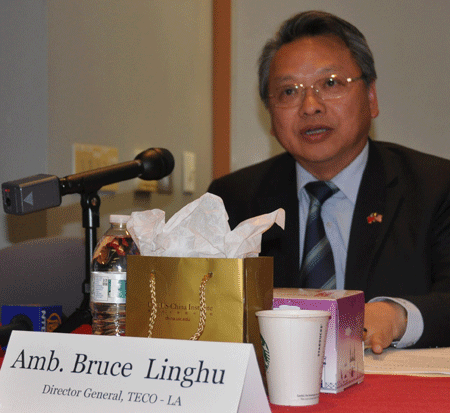In 2013, the U.S. and Taiwan exchanged $65 billion in goods. Taiwan is America's 12th largest trading partner, just behind India and ahead of Holland and Italy. Acer, Asus, BenQ, HTE, Microtek, and Trend Micro are among the Taiwan tech brands recognized by American shoppers. Others know Evergreen shipping, Eva Air, Franz porceilains, Giant bikes, and other firms. Many Taiwan companies (Foxconn, for example), though, also assemble U.S.-branded products such as the iPhone in China. The economic ties between the U.S. and Taiwan are well-established and multistranded.
On April 9, Taiwan's President Ma Ying-jeou spoke by video-link to people in Washington, DC, Los Angeles, and elsewhere. He was introduced by John Hamre, President of the Center for Strategic and International Studies. Christopher Johnson, CSIS Freeman Chair in China Studies moderated the discussion.
At USC, a number of scholars discussed points raised by the president and the dramatic spring events, including the occupation of the Legislative and Executive Yuan by students opposed to the cross-strait services agreement.
Click here to watch presentations from other panelists.
Click here to view the event listing.
This video is also available on the USCI YouTube Channel.




